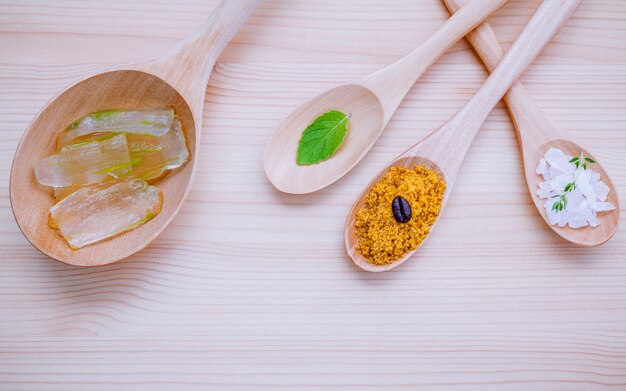Naturally Fade Acne Scars: Your Comprehensive Guide to Clear Skin
Acne can be a frustrating challenge for many of us, but what can feel even more daunting are the scars that sometimes remain. These scars can linger long after the skin has healed, serving as an unwelcome reminder of past breakouts. The good news? You can work on reducing these scars naturally with methods that are kind to your skin. Ready to learn more? Let’s dive in!
Understanding Acne Scars
What Are Acne Scars?
Acne scars occur when a breakout penetrates the skin deeply and damages the tissues beneath it. This damage triggers the skin's repair process, resulting in increased collagen production. While collagen is essential for skin healing, its excessive or uneven production can lead to scarring. There are several types of acne scars:
- Atrophic or Depressed Scars: These are the most common and include icepick, boxcar, and rolling scars.
- Hypertrophic Scars: Raised scars that develop mainly on the back and chest.
- Post-inflammatory Hyperpigmentation (PIH): Dark spots that aren't true scars but occur as a result of skin inflammation.
Why Remove Scars Naturally?
Natural methods of skincare focus on using ingredients and techniques that work in harmony with your skin's biology. These methods often pose less risk of irritation or side effects and can be gentler on sensitive skin, making them favorable for long-term care and maintenance.
Natural Remedies to Fade Acne Scars
1. Aloe Vera
Why it works: Aloe vera is famed for its soothing, anti-inflammatory, and healing properties. It helps in repairing damaged skin, which can reduce scarring.
How to use: Apply fresh aloe vera gel directly from the plant onto clean skin. Leave it on for 30 minutes and rinse. Consistency is key—use it daily.
2. Lemon Juice
Why it works: The citric acid in lemon juice acts as a natural bleaching agent that can help lighten scars.
How to use: Mix fresh lemon juice with a small amount of water to dilute it. Apply with a cotton ball to the affected areas but avoid prolonged exposure to sunlight afterward due to potential skin sensitivity.
3. Honey
Why it works: Honey is known for its hydrating properties and ability to speed up the skin's healing process.
How to use: Use raw honey as a spot treatment or mix it with cinnamon to create a mask. Apply it to scars and leave it on for 15-20 minutes before washing.
4. Coconut Oil
Why it works: Rich in vitamins E and K, antioxidants, and fatty acids, coconut oil helps repair damaged skin.
How to use: Massage a small amount of coconut oil onto your scars daily. It's moisturizing and can improve skin texture.
5. Apple Cider Vinegar
Why it works: This acts as a natural astringent and has antibacterial properties that help remove dead skin cells.
How to use: Dilute with water and apply gently with a cotton ball. As with lemon juice, be cautious of sun exposure after use.
6. Tea Tree Oil
Why it works: Known for its antimicrobial properties, tea tree oil can help reduce swelling and redness.
How to use: Dilute the oil in water or a carrier oil before applying to the skin to prevent irritation.
Lifestyle and Dietary Tips for Healthy Skin
Stay Hydrated
Drinking enough water helps maintain skin elasticity and moisture levels, which can aid in the skin's natural exfoliation process and improve scar appearance.
Balanced Diet
Consuming a diet rich in antioxidants (think colorful fruits and vegetables), healthy fats (like those in avocados and nuts), and hydration-boosting foods can help skin repair and renew itself more effectively.
Sun Protection
Sun exposure can darken scars and slow down the healing process, so always apply broad-spectrum sunscreen with at least SPF 30 and cover up when possible.
Get Plenty of Sleep
The skin repairs itself during sleep, making rest crucial to the healing process. Aim for 7-9 hours per night.
Additional Tips and Considerations
Patience is Essential
Natural methods take time. Consistent, daily care is necessary to see significant improvement.
Patch Test
Always perform a patch test before trying a new treatment, especially if you have sensitive skin, to prevent adverse reactions.
Stress Management
High stress levels can exacerbate skin issues, so practice relaxation techniques, such as yoga or meditation, to keep stress at bay.
Understand When to Seek Professional Help
Some scars may not respond to natural treatments alone. If you don’t see improvement, or if your scars are significantly affecting your self-esteem, consider consulting a dermatologist for personalized advice.
Empowerment comes from understanding your options and taking steps that align with your lifestyle and values. Natural treatments can offer effective pathways to reducing acne scars, helping you embrace healthier, clearer skin. Take care and treat your skin kindly!
✨ Summary of Natural Acne Scar Solutions ✨
- Aloe Vera 🌱: Soothes and heals, use daily for best results.
- Lemon Juice 🍋: Lightens scars; beware of sun exposure.
- Honey 🍯: Hydrates and accelerates healing.
- Coconut Oil 🥥: Repairs and moisturizes skin.
- Apple Cider Vinegar 🍎: Exfoliates and disinfects.
- Tea Tree Oil 🌿: Reduces swelling, apply carefully.
- Lifestyle Habits ☀️: Hydrate, eat well, protect from sun, and sleep.
Patience is vital! Remember to patch test and consult a professional when necessary. Your journey to clearer, happier skin is underway! 🌟

